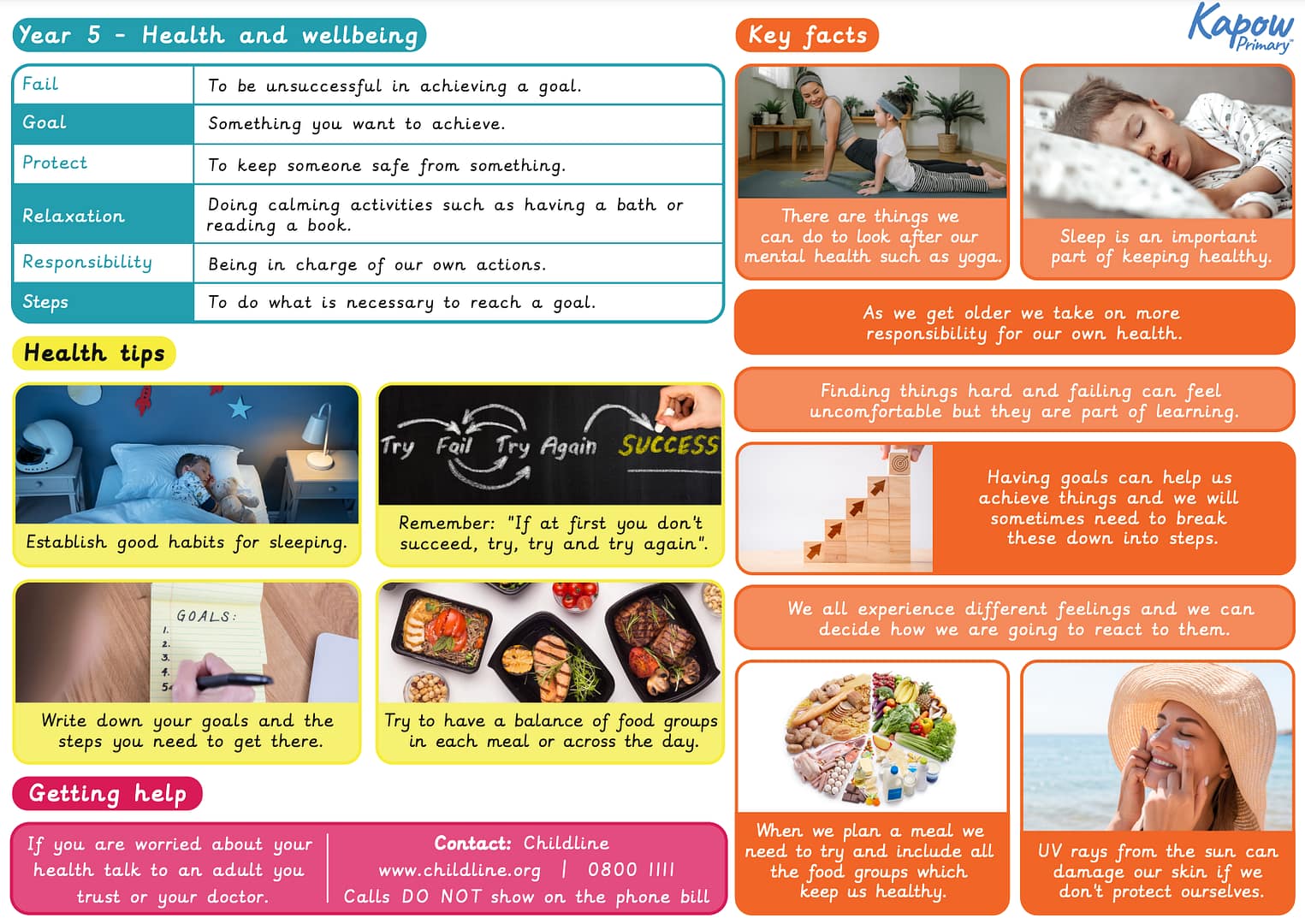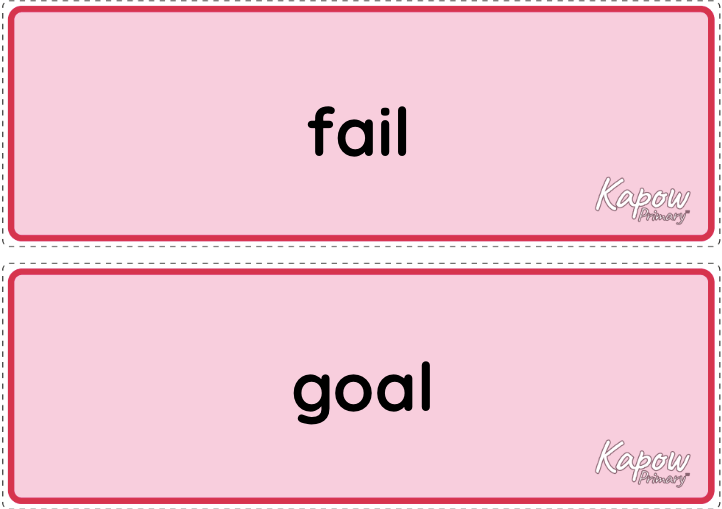Year 5 Health and wellbeing
This unit hub can be used to inform your medium-term plan and to navigate to related resources.
The Curriculum and Assessment Review final report has been released. We’re reviewing the recommendations and planning for future updates. Learn more
- Subjects >
- RSE & PSHE >
- Key stage 2 >
- Year 5 >
-
Y5 Health and wellbeing
Unit outcomes
Pupils who are secure will be able to:
- Perform some yoga poses, following the instructions from a video, and describe how yoga makes them feel.
- Describe how they can get a good night’s sleep and explain why this is important.
- Describe why they should embrace failure.
- Describe a strategy to help manage feelings of failure and to help them to persevere.
- Set themselves goals and consider how they will achieve them.
- Describe a range of feelings and suggest two ways of dealing with a difficult situation.
- Demonstrate an understanding of what calories are and how to use them to help plan healthy meals.
- Recognise the food groups and acknowledge that having a variety of food is important for having a balanced and healthy diet.
- Understand how to keep safe in the sun and some of the risks, now and in the future, if they don’t.
Suggested prior learning
Y4 Health and wellbeing
Get startedLessons
Lesson 1: Relaxation: yoga
- To use yoga poses and breathing to relax.
Lesson 2: The importance of rest
- To understand the benefits of sleep.
Lesson 3: Embracing failure
- To understand the purpose of failure.
Lesson 4: Going for goals
- To learn how to set short-term, medium-term and long-term goals.
Lesson 5: Taking responsibility for my feelings
- To use vocabulary to describe their feelings and take responsibility for them.
Lesson 6: Healthy meals
- To understand and be able to plan healthy meals.
Lesson 7: Sun safety
- To understand risks associated with the sun and how these can be avoided.
Key skills
Key knowledge
Related content
Unit resources

Knowledge organiser: RSE & PSHE – Y5 Health and wellbeing
A pupil-facing summary document, capturing the key facts and knowledge from the Year 5 Health and wellbeing unit.

Videos: RSE & PSHE Health and wellbeing
A collection of Q&A videos with RSE & PSHE Consultants addressing unit-specific themes to support the teaching of the Health…

Vocabulary display – RSE & PSHE Y5: Health and wellbeing
A display version of the key vocabulary from the Year 5: Health and wellbeing unit.
Cross-curricular opportunities
Physical education
‘Pupils should be taught to:
- develop flexibility, strength, technique, control and balance’.
See National curriculum - Physical education key stages 1 to 2.
English
‘Pupils should be taught to:
- participate in discussions, presentations, performances, role play, improvisations and debates
- plan their writing by:
- identifying the audience for and purpose of the writing, selecting the appropriate form and using other similar writing as models for their own
- draft and write by:
- in narratives, describing settings, characters and atmosphere and integrating dialogue to convey character and advance the action’.
See National curriculum - English key stages 1 to 2.
Mathematics
‘Pupils should be taught to:
- solve number problems and practical problems
- add and subtract whole numbers with more than 4 digits, including using formal written methods (columnar addition and subtraction)’.
See National curriculum - Mathematics key stages 1 to 2.
Science
‘Pupils should be taught to:
- recognise the impact of diet, exercise, drugs and lifestyle on the way their bodies function’.

